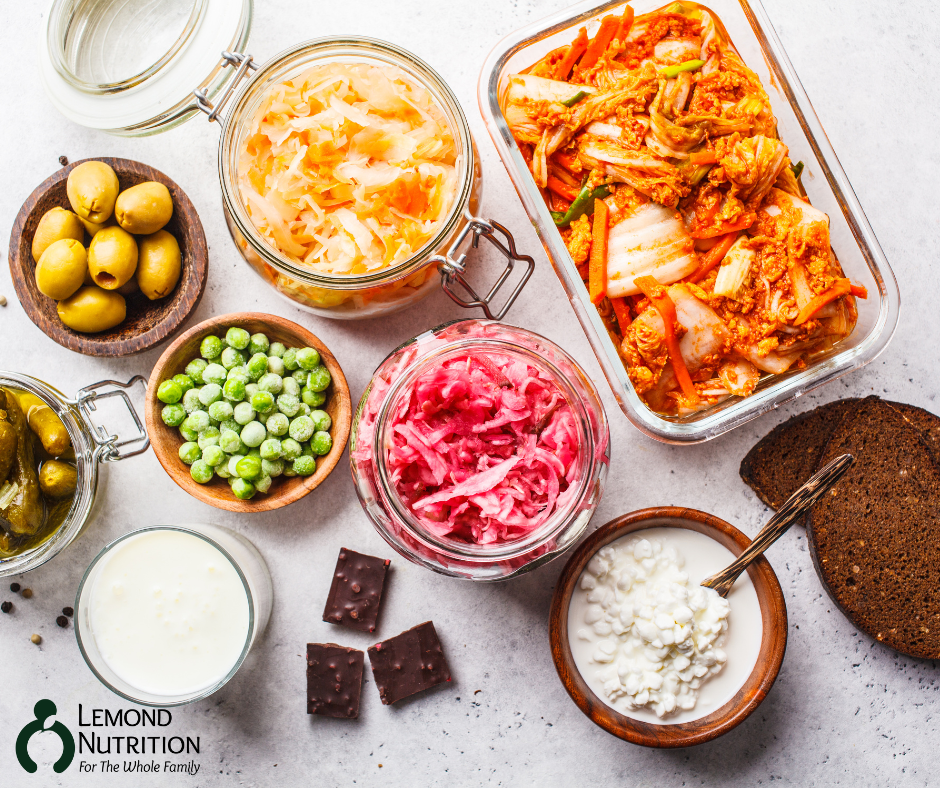Fearing Your Food Hurts Your…Gut?
Yep. We see this play out in many of our patients and clients. Food allergy tests come back negative, yet something seems off when they eat certain foods. Food sensitivity tests done, many producing false positives, may lead to unnecessary food restrictions. Yet, we understand... They are willing to try anything!
Where does the sensitivity start? Does it start in the brain or in the gut? Researchers and healthcare providers debate on where one starts and one stops.
We know that the brain is very powerful in creating actual symptoms in the body. When someone has a panic attack, our mind can create the symptoms that mimic a heart attack. For those that deal with anxiety, you know that to be true. The panic creates a cascade of symptoms that increases heart rate, breathing becomes manualized, the left arm and back may start aching. This can quickly become scary enough that someone calls 911. But the heart may be fine.
When it comes to eating, nerves line the digestive tract and can trigger issues with digesting your food. When those nerves are firing, whatever is in the gut can become upset. It can be very hard to decipher if it was a specific food or if it was the overall nerves. As dietitians, we do acknowledge that there are more and more people diagnosed with irritable bowel syndrome (IBS) and adjusting the amounts of various types of foods often have a benefit in symptoms. It takes a lot of trial and error to figure out where the nerves, the digestive abilities and the food collide.
One of the many reasons why our nutrition counseling is always done with an empowering foundation is because we know that fear-based guidance is not helpful to any human. If those nerves are too stimulated, nothing digests well.
Gut-Brain Axis
We are learning more and more about how intricately connected the brain and gut truly are. What we think affects our food, and what we eat affects our mood. Therefore, we must discuss them together in a productive and helpful way.
There is a growing body of literature that reveals pathways of communication between the microbiome (ecosystem of the gut) and brain in various disorders of both mood and motility. Links going all the way back to the time in our mother’s womb to our body’s exposure to various emotional and physical experiences that influence them all. Our brain is connected to an enteric nervous system that involves the muscles that move food, the digestive lining and the automatic fibers that connect the spinal cord and the brain. Our body systems work in tandem, and the brain is connected to them all. It should be no surprise that the brain and our mood can absolutely affect major organs like the heart, kidneys, immune system and the digestive system.
Source: Reviews in Basic and Clinical Gastroenterology and Hepatology. The Microbiota-Gut-Brain Axis: From Motility to Mood
Feed Your Gut: Good Vibes and Fiber!
We must make peace with our bodies. One of the first ways you can do that is by believing that your body can do its part. We get too many messages in the field of wellness that ultimately hijack our confidence in what our bodies can do. As a result, we feel the need to over control everything for our bodies to work. Messages tell us we must over control the foods we choose, over supplement, over exercise, and over think solutions. Maybe we just need to trust more? The human body is the most miraculous creation in the world. We do not deny real physical health issues that occur everyday. Don't misunderstand this article. However, we must also consider the magnitude of what the brain could be communicating to our bodies.
Give your body the option to function right as you start with a trust foundation. Meet with a counselor or minister that can help you work through problems and anxieties that may be plaguing you in other areas of your life that might be impacting your health. Meditate, spend time outdoors, get some joyful movement, adequate sleep – all these things are so vital in our self-care and tuning in to our physical and emotional needs. Those issues play a role in how your body is digesting food and we know that it plays a part in your mental health.
When it comes to food, you can gently start adding foods that are naturally rich in fiber. Fiber (prebiotics) and fermented foods (probiotics) build up the microbiome in a beautiful way. Does it mean you should only eat food that is high in fiber? No. Balance is the key. Add foods that are high in fiber slowly so your body can get the signal to produce the necessary enzymes to break down those fibers. As you increase foods high in fiber, make sure you are drinking enough fluid to allow those fibers to move through without creating too much gas and pressure. Complement all this with some physical activity that you enjoy so the body works optimally with all these promoting homeostasis.
The Academy of Nutrition and Dietetics has a professional practice group called Dietitians in Integrative and Functional Medicine. They provide a wonderful list of foods high in probiotics and prebiotics:
Don't Go It Alone
The process of discovering where the physical and mental aspects of health intersect can be confusing. We would be honored to walk alongside you in that process. We are evidence-based, gentle nutrition experts with a keen eye on the emotional aspects of a person's wellness. Our team works closely with our mental health partners, GI doctors and other healthcare providers that can build a treatment plan that is customized to you. Give us a call at 888-422-8070 and meet with one of our dietitians often with 100% insurance coverage. Get your mood and food balanced once and for all!
About Angela Lemond
No information on this site should be used to diagnose, treat, prevent, or cure any disease or condition.











